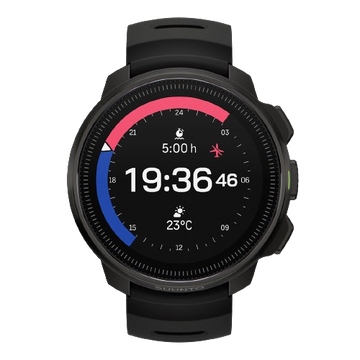
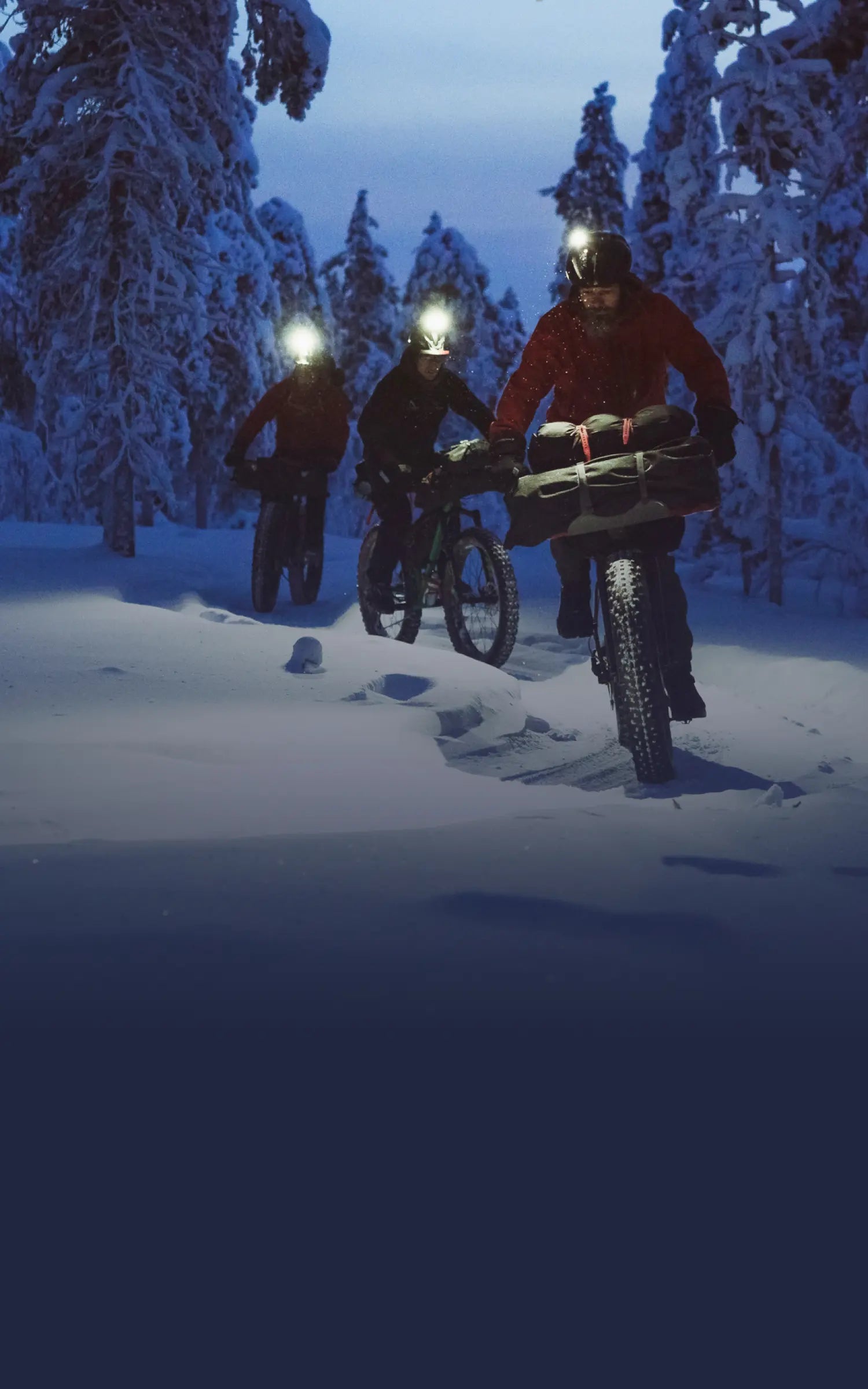
Suunto Blog
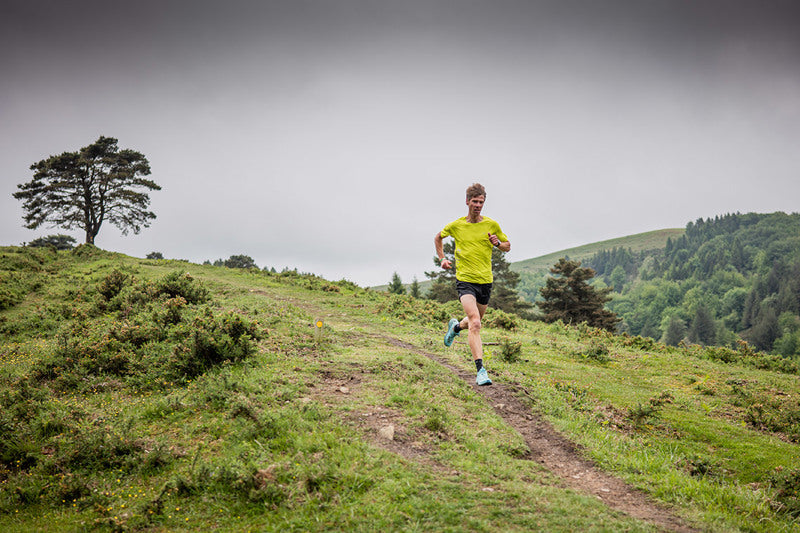
Chase Strava segments with Suunto
Segments are a key part of the Strava community for many. They are stretches of road or trail created by members where athletes can compare times. The segments can be used to compete with others or to follow your own progress over time.
A great example of the power of Strava Segments can be found in Suunto ambassador Philipp Reiter’s home village of Bad Reichenhall in Southern Germany. “The trail up Dötzenkopf is a steep 1,8 km uphill with 400 meters of elevation gain”, says Suunto ambassador Philipp Reiter. “It’s my favorite training area and I have been up there more than 1500 times. From the top you have a nice view over Bad Reichenhall and to Salzburg.”
The power of the trail and the segment is more than the physical challenge of it: it brings people together. “People do it for fitness before and after work, the older people in the morning. During Easter and Christmas, they prepare a little tree and hang decoration. It’s also a social meeting mountain for the locals,” says Philipp.
Strava Live Segments bring the experience of competing on a run or ride segment to your Suunto Vertical, Suunto 9 Peak Pro, Suunto 9 Peak and Suunto 9 Baro watch.
Here’s step by step guidance on how to use the feature.
Connect your Suunto and Strava accounts
Go to your profile in Suunto app and select “Partner services” -> “Connect with Strava”.
Note: If your Suunto and Strava accounts are already connected, you will need to re establish the connection to get the segment data to flow from Strava to your Suunto account: Simply go to the above mentioned "Partner services" section of Suunto app, find "Strava" and tap "disconnect" and then "Connect with Strava" to re-establish the connection.
Select your favorite segments
On the Strava app, go to the Maps tab to find the segments you want to follow on your watch, then hit the star to save it as your favorite. The starred segments will be available for you as live segments on your Suunto. Unstarring a segment in Strava will also remove it from your Suunto.
See your starred segments in Suunto app
In the Suunto app you will see your starred segments, the ones that are synced with your Suunto for live-follow-up: Go to “SuuntoPlus Store” -> “My SuuntoPlus Guides” -> “Strava segments”
Activate Strava Live Segments on your watch
Select Strava Segments Guide for running or cycling in the exercise settings: After selecting your preferred sport mode – but before pressing start – scroll down to “SuuntoPlus” -> “Guides” -> “Strava segments”. Turn them on.
Follow segment data during activity
Strava Live Segments will be added as an extra screen. Scroll right to see it. During your run or ride, you will see how close the closest segment start is. Once you get within 100 meters, the watch will alert you that you are approaching a segment. As you reach the starting point, the segment will start.
During the segment your time will be compared to your personal record (PR), showing you how much ahead or behind you are. If you don’t have a personal best time on that segment, the comparison will be with King/Queen of the Mountain (KOM/QOM). After finishing the segment you will see your segment time, a comparison to your previous PR and whether you managed to earn the new Queen or King of the Mountain crown or not.
See the segments as laps in Suunto app
After chasing segments with SuuntoPlus Strava Segments and syncing your data with Suunto app, you can see the segments as laps in your activity.
Get Strava Subscription with a new Suunto watch
When buying a new Suunto watch you will also receive the Suunto Value Pack, a collection of benefits and treats offered by our partners. One of the benefits is a free, 60-day Strava subscription!
Learn more about Suunto Value Pack

Weekend Adventures around major European cities
This summer, we want to inspire you to take a new, unknown route and have built Weekend Adventure route collections around major European hubs.
We kicked off in June with gravel adventures around Munich and Paris and hiking adventures around Milan and our hometown of Helsinki. For July we have added four more exciting route collections: hikes in Madrid and Berlin and gravel rides in London and Rome! Most routes are within an hour from the city centre and long enough to be split into two day adventures.
Adventuring close to home is not only practical and time-efficient; it’s also good for the environment. You don’t always need to travel far to experience something new. So, pack your tent, get your gear and start exploring – the adventure starts here!
Scroll down for hikes in Berlin, Helsinki, Madrid and Milan or gravel bike rides in London, Munich, Paris and Rome!
Connect with Komoot to get the Weekend Adventure routes on your Suunto
The Weekend Adventure collections are hosted by our partner Komoot. Komoot is a platform that lets you find, plan, and share adventures. Personalized route recommendations and inspiration are in the core of Komoot.
Suunto is fully compatible with Komoot: Once you have connected the two accounts (go to Suunto app’s “Partner services” section and select “Connect with Komoot”) routes planned with Komoot flow automatically to your Suunto app’s route library and your activities tracked with Suunto go to Komoot. Turn-by-turn guidance and all is included in the sync. Learn more about the various Komoot packages
Find tranquility on these hikes in Berlin
Just a few kilometres beyond Berlin's city limits, you'll find tranquillity, magnificent landscapes, sparkling lakes and rivers, but also some thrills. In this Collection, we present three hiking Tours that take you to three regions around Berlin. You'll hike along clear waters, discover mystical wetlands and unique, mangrove-like forests. The Tours all have one thing in common: water plays a major role. Two of the hikes can be completed in a day, an overnight stay is recommended for the third one.
Enjoy the English countryside on a gravel bike
You don’t need to live in the countryside to find fantastic gravel trails. London has a vast network of off-road cycling, with some excellent tracks radiating from the city and transporting you to the serene landscapes of the home counties.
The three tours in the London collection can be covered in a day or two: All of them include a convenient midpoint accommodation option, allowing you the flexibility to extend the adventure over two days if desired.
Hike in vast forests less than an hour north of Madrid
The hiking routes in Madrid take you to the Sierra de Guadarrama National Park and the Sierra Norte region less than an hour north of the city. The area boasts vast expanses of lush forests, fantastic granite formations, mountains that tower over 2,000 metres, important rivers, and impressive limestone ravines.
You can complete all the routes in a day if you wish. Otherwise, you can also spread the distance over two days and stay halfway at a refuge or hostel. We’ve included more information in each route description.
Ride ancient roads in Rome
The gravel cycling routes around Rome venture through the Italian countryside and take you on compacted dirt tracks, ancient paved roads, fast singletrack, and rolling lanes with little traffic. Discover the woods around Lake Bracciano, trace historic routes like the Via Appia Antica, explore the wonders of the Castelli Romani, and pedal along the Regina Ciclarum – the most beautiful cycle path in Lazio – until you reach the seafront and the pine forests of the Roman coast.
These Tours are real adventures that require decent fitness and plenty of determination to complete in a day – the distances are between 97 and 179 km. You can also take it easy and split the route so you have more time to fully enjoy these rich natural and historic places.
Gravel rides just outside of Munich
Get out of the city, leave your stressful week in the city behind with only a few pedal strokes and start your weekend adventure in nature. The green surroundings of Munich are diverse – you circle crystal-clear lakes, dive into bubbling river valleys, enjoy Bavarian country life or taste the specialties of Salzburg.
Best of all: A large part of these three journeys take you away from the paved roads on fine gravel paths or exciting single tracks.
Mountain hikes close to Milan
In this Collection we offer you three truly epic hiking adventures a stone's throw from Milan. Just head north by train or car to quickly reach the foot of the mountains – and what mountains!
These three treks are as spectacular as they are demanding. They will take you to some of the most beautiful places outside of Lecco, close to Lake Como. In each tour we point out refuges or other accommodations where you can stop to eat or spend the night, as well as options to shorten the route, if you wish.
Explore Paris on a gravel bike
In this Collection, you discover the surroundings of Paris in adventure mode. The surroundings of the French capital offer a superb playground for gravel cyclists – this Weekend Adventures Collection is a proof of that!
These three cycling routes are rather long, but you can split them in two stages. Two of them make a loop and one is a point to point. However, that is not an issue as you can get back by train.
Hike in the national parks just outside of Helsinki
Our Helsinki Weekend Adventure Collection features three beautiful hikes accessible from the city. It doesn’t take long to escape the buzz of the city and find yourself immersed in archetypal Finnish landscapes, where the right to roam enables you to explore freely.
Two of the hikes explore parts of the spellbinding Nuuksio National Park, with its glistening lakes, serene woodland and rugged terrain. The third hike discovers the quieter Sipoonkorpi National Park and its nature-rich boardwalks.
Images by Philipp Reiter
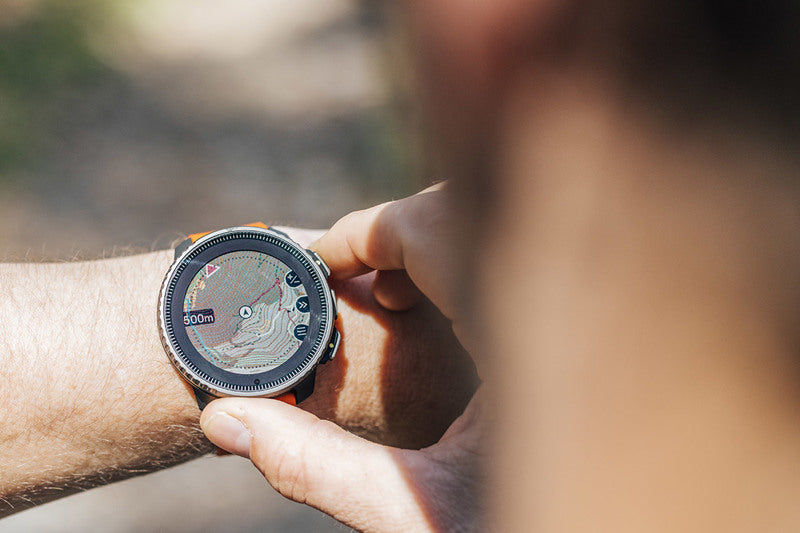
How to use the terrain maps in your Suunto Vertical
Suunto Vertical comes with detailed outdoor offline maps that are globally free of charge. The new maps build on Suunto’s already advanced route navigation in the Suunto app. Discovering and creating routes is easy with the Suunto app's heatmaps, 3D maps and road surface-type layers and syncing them into a watch is effortless.
Now, users have offline maps to consult no matter where they are, offering them greater safety and confidence!
In this article, you will learn how to get started with the maps.
Getting the maps on your watch
You can download the maps on your Suunto Vertical watch using the Suunto app. You don’t need to pay any extra for the maps: simply select the right area for your adventure and download it.
The watch has plenty of storage capacity, too: You can download 32GB of maps. As a reference the entire France is 7,47 GB and the entire Canada 15,17GB. Naturally large maps take longer to download so being a bit more specific helps you get the maps on the watch faster.
Add wireless network to watch
To install offline maps on the watch, connect your watch to a wireless network using the Suunto app:
Pair your Suunto Vertical with Suunto app
In the Suunto app go to the watch settings (select the watch icon on the top left and then the settings symbol on the top right)
Select ‘Wireless networks’ and add a network
You can add multiple wireless networks (like home and work)
Select the offline map area
Go to the map view in the Suunto app and tap ‘+’, the same “plus” you use to create a new route. That will allow you to download new offline maps.
Search for the correct map or select it in the country menu. You can still review the selected area on the map before downloading.
Connect the watch to the charger
Once you have established the connection with a wireless network and selected your preferred map area, you can download the maps on the watch. To start the download, connect the watch to a charger.
Using the offline maps on Suunto Vertical
Top buttonShort press: Zoom inLong press: Zoom out
Middle buttonShort press: Next screenLong press: Zoom/pan options
Lower buttonShort press: Navigation options
You can use the terrain maps during an activity with a preplanned route or simply see the breadcrumb trail, the path you have already traveled, on the map.
Happy adventures!
READ MORE
Six ways to plan a route for your next adventure
How to use avalanche terrain maps
Lead image by Maximillian Gierl
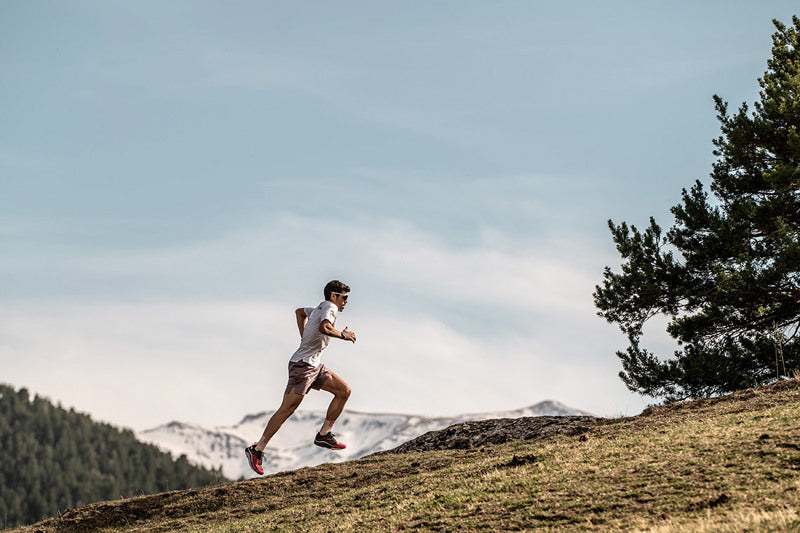
Get feedback from the Suunto coach
The role of a coach is to provide guidance, support, and expertise to help athletes achieve their goals. A coach can be crucial for monitoring progress and providing feedback and adjustments as needed to ensure the athlete is training safely and effectively.
A great coach is also a friend and a companion in your journey. A coach motivates you and requires accountability. Overall, a coach helps athletes improve their performance, avoid injury, and reach their full potential. This is also our goal when providing you with Suunto Coach.
Suunto app’s Training zone has an AI-based coach that is an integral part of the service. It looks at hundreds of different parameters after each workout, learns how you train, and builds a normal training pattern that evolves from every workout you do. Based on this, it can give you the key highlights of your training, recovery, and progress. It provides insights and suggestions for the current week, so you can adjust your effort level as you go forward.
The Suunto coach recognizes areas you are missing in your training this week that you normally are focusing on: Are you lacking volume in your swim workout? Do you push yourself too much with high-intensity runs?
The Suunto coach is not trying to push your training in a direction that you are not used to. For example, if you usually do just high-intensity training, the Suunto coach is not going to ask you to focus more on lower-intensity sessions.
Suunto coach doesn’t really know what is your goal or if you want to follow some specific training methodology. But what it does, is alert, highlight, and comment when you are exceeding healthy limits or just lacking some training aspects you are used to. Suunto coach is there to keep you on your selected path. Its recommendations and highlights are easy to digest without you needing to dig deep into the data.
Now, go to the Suunto app and meet your new coach – the coach already knows you based on your training history!
Lead image by @rsalanova
READ MORE
Manage your training with Suunto app's Training zone

How to smash your first gravel race
If you’ve registered for one or more of the five races in the Nordic Gravel Series starting this June you’ve come to the right place. We’ve put together a series of articles that’ll help you compete and have a blast.
With races held in Finland, Sweden and Norway, it’s the largest gravel series in the Nordics. With a focus on providing fun, inclusive events, each event is open to beginners and seasoned riders, alike.
In this series, we’ll look at how to physically and mentally prepare for the race, some specific workouts and drills that will help you progress, race day tips, and more. This first article introduces the world of gravel racing and the base training phase.
Christian competing at the Atlas Mountain Race in Morocco, 2019. © Lian van Leeuwen/Atlas Mountain Race
Your guide: the athlete-entrepreneur
Suunto ambassador and former road cycling pro, Christian Meier fell in love with bikes as a teenager in Canada. Coming from a hardworking family, he put in long hours in the saddle and eventually competed in Tour de France and Giro d'Italia. Now he lives in Girona, Spain where he runs a handful of businesses and continues to push himself as an allround cyclist and ultra runner.
Welcome to gravel
Gravel cycling is a fast-growing discipline of cycling that takes riders off the tarmac and onto unpaved roads. It’s a hybrid of road and mountain biking, combining elements of speed, endurance, and technical riding. If you're looking for a new type of race to compete in, or simply want to try something new, the races offered by the Nordic Gravel Series will offer adventure, fun, community, competition and challenge.
“Having spent time on the gravel in Norway I think the Nordics have probably some of the best gravel riding around,” Christian says. “There is so much diversity in topography and the people truly live for the outdoors, add in those never-ending summer nights and it adds up to something quite unique and special.”
© Nordic Gravel Series
Know why you’re entering
Entering the Nordic Gravel Series doesn’t have to be about winning. In fact, gravel cycling races are often less competitive than traditional road races, making them a great opportunity for cyclists to connect with one another and have fun.
“Gravel races tend to offer something for everyone as the scene tends to be more experiential than purely performance-based as you may get in road cycling,” Christian says. “Many of the gravel races these days have a festival feel with food, drinks and music around the events.”
Before building your training plan, ask yourself what you want to achieve. Are you entering to race competitively or to have an awesome experience? Is it just about finishing the race or do you have a finishing time you’d like to achieve? The answer will determine how much training volume and intensity you’ll need to complete before race day.
Base, build and taper phases
Gravel cycling races can be physically demanding, with long hours in the saddle over rough terrain.
To prepare for his races Christian follows a base, build and taper training structure. “For me, it’s all about having the biggest aerobic engine possible,” he says. “This engine is what allows you to push the big watts or to feel comfortable and have an enjoyable time if you are just there to enjoy with your friends.”
© Nordic Gravel Series
Design your training plan
Ideally, you’ll allow yourself about five to six months of training before the race. Most of that will be the base training phase, then the build training phase, and finally two or three weeks to taper before the race. Sit down and write it down. Assess the following:
Your fitness level
Before you begin your training, take some time to assess your current fitness level. This will help you determine what type of training is necessary to help you reach your goals and prepare for the race. Your Suunto watch can help you assess your fitness and find the right training zones. Learn more about testing your fitness with Suunto here.
Any work or family commitments
It’s important to create a realistic, doable training plan that works with your circumstances and current fitness and experience level.
Your goal and what level of training is required to achieve it
Do you want to win it all, are you gunning for a particular time, or are you there for the experience?
If you are working with a coach – or want to find a ready made training plan – check out TrainingPeaks. Workouts planned there are synced to your Suunto watch for real time guidance.
Base phase
The base training period is the foundation for your race preparation. This period lasts about eight to 12 weeks, and the focus is on increasing your endurance, stamina and overall fitness. During this time, aim to ride four to five times a week, with one or two of those sessions being longer, endurance rides about three hours if your motivation is to have fun and four or more if your aim is to compete.
Focus on building your endurance and stamina. This can be done by doing long, steady-state rides (zone two training zone) on gravel roads, trails or on the tarmac if that’s what’s easily accessible. Build in longer rides on the weekend. Try to fit in two big base fitness days a week.
During the week when you have less time Christian recommends focusing on quality sessions. On Tuesday and Thursday do some steady state work.Your effort should feel like you are pushing but can maintain the duration of the effort comfortably. Here's a starting suggestion: do a 15 min warmup, 2 x 20 minute intervals with a 10 minute recovery, then a 10- 15 minute cool down. "You want to feel like you have worked hard but that you could have done more" Christians says. "For the racer, make it 3 x 20 minutes. I would save any high intensity training for the build phase (covered in the second article of this series). Zone two training is the best bang for your buck for improving your aerobic engine.”
Include hills in your training. But don’t overdo it at this point.
Add in one session a week of off-the-bike strength training, such as core stability exercises and weight lifting, to build overall strength and prevent injury.
Monitor your progress and recovery
With a Suunto GPS sport watch, like the sleek and powerful Suunto 9 Peak Pro, you can record all your training sessions and monitor your progress. Are you hitting your targets? Are you giving enough time to recover between sessions? Is your power improving? Your watch will tell you and keep you on track.
Prepare your bike
During the base phase, take time to study the race course and prepare your bike.
“Six months out from a race I like to get a good idea of what the course will be like: the amount of climbing, and surface conditions would be key to understand,” Christian says. “These will inform me of two important factors: gearing and tire selection. Both can have a huge effect on your race. Too small gearing on a flat course and you could find yourself spinning out when you’re in a group and pushing the pace. Likewise, too big gearing on a hilly course could find you pushing too hard on the climbs, sapping power from your legs over the course of a long day. Take time to think this through.”
Look out for the second article in our series about preparing for the Nordic Gravel Series. We’ll dive into how to build power, improve your technical skills and more!
Lead image: © Nordic Gravel Series

Manage your training with Suunto app’s Training zone
Get a detailed overview of your training in Suunto app’s new Training Zone!
A progressive training load with adequate recovery and ways to follow progress will lead to a successful adventure or race.
Suunto is your daily companion to enhance your performance. The new training toolset in Suunto app’s Training zone is vast. Read on and learn what’s available. We are sure you will find your new favorite dataset to analyze your training and follow your progress.
To ensure you have the latest Suunto app version update your iOS app in App Store and Android app in Google Play.
Four new ways to look at your training
Am I training smartly? Is my training load progressive? Do I have the right intensity mix? What type of impact do my workouts have?
Training load
The training load theme in Suunto app’s Training zone gives you a good overview of this week’s training load compared to a six-week average. You will also see the daily training load split and the split by activity type. All of this will help you understand your overall physiological load and how much more you can – and should – still do this week.
The value of following your physical load weekly with comparisons to your long-term baseline is that you can look at this as a goal for the week. To gain some fitness, you might want to slightly increase the load for the week. To ensure recovery, keep the load level lower than your average.
Training intensity
Are you really doing both easy base training and higher intensity? Or is your training piling up in a single intensity zone, like tempo work in zone 3? The new Training intensity theme in Suunto app will help you understand your training better as you will see both the weekly intensity distribution and the six-week averages.
The workout intensity totals can be viewed as heart rate, pace, running power, and cycling power zones.
You can set your sport-specific training zones in your Suunto watch based on heart rate, pace and power. Suunto is following a five-zone model where your anaerobic threshold is at zone 4 /5 limit. You can find your correct training zones with a lab or a field test. SuuntoPlus Sports apps like the Anaerobic threshold test and the Functional threshold power test will guide you through a field test session.
Learn more about intensity zones.
Training volume
The sports you have done during the week are shown with duration, distance, load, and ascent. Sports are also grouped to give an overview of each type of sport i.e. running includes running, treadmill, and trail running.
Volume is compared with your six-week average.
As you follow your training volume, you can now easily ensure that you meet the numbers for your key sports any given week: It might be that as a trail runner, you want to get 3000 meters of ascent each week, or as a cyclist, ride 200 kilometers weekly. Your six-week average will help you match your personal benchmark.
Training impact
Suunto app’s Training impact is a new tool that helps you understand your training model and the physiological systems you are targeting. This will help you understand if you are doing what you were planning to do – and if you are missing something in your training.
Training impacts are defined as cardio and muscular impacts. Each workout gets assigned an impact such as “Aerobic” or “Speed & Agility”. Cardio impacts are based on workouts intensity, load, and duration. Muscle impacts are based on activity type.
The training model is identified based on your workout intensity distribution such as Polarized (most activities on low and high intensities, less in the middle), Sweet spot (training mainly between aerobic and anaerobic thresholds), and Base training (most workouts are in zones 1&2).
In addition to the current week, you will see the six-week average for your training impact.
As with other training insights, the impacts are illustrated with long-term reference. If your normal training week has two aerobic sessions, one VO2 max session and two strength sessions, and on Friday you are still missing those aerobic sessions, you know what to focus on during the weekend. This will help you check all the boxes.
Training impact is currently available on Suunto app for Android. Coming soon to iOS as well!
Lead image by Roger Salanova
READ MORE
Get feedback from the Suunto coach
Test your fitness with Suunto
Plan your interval workouts with Suunto app
Unlock your interval training and watch your running improve







































